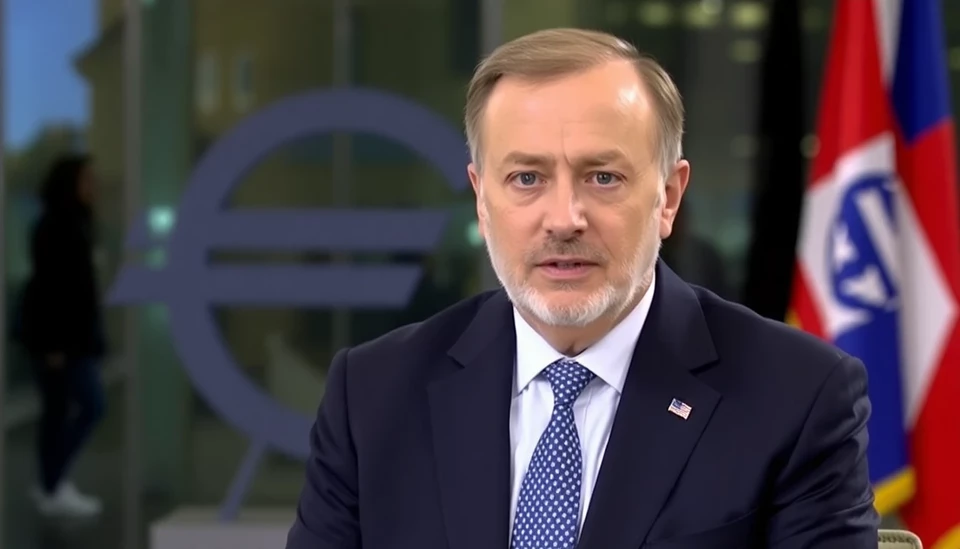
In a recent address, the European Central Bank's (ECB) chief economist, Martins Kazaks, has shed light on the central bank's monetary policy trajectory, emphasizing a measured approach to interest rate reductions. According to Kazaks, the prevailing economic conditions in the Eurozone point towards a scenario that favors a step-by-step lowering of interest rates, suggesting that any shifts will be deliberate and calculated as the ECB navigates inflation and growth dynamics.
Addressing a gathering of financial experts and economists, Kazaks elaborated on the challenges the ECB faces, including surging inflation rates and potential economic slowdown. He articulated that the current base scenario for ECB policy includes the gradual easing of rates rather than abrupt cuts, which could destabilize the financial system. This strategy reflects a commitment to ensure that economic recovery remains on a stable course while maintaining inflation expectations in check.
Kazaks indicated that the ECB's decision-making process would be influenced by forthcoming economic data, which will provide insights into the Eurozone’s inflation trends and overall economic performance. He acknowledged that while there are signs of inflation easing, the central bank remains cautious, as it must consider the broader implications of any adjustments to interest rates on consumer spending and investment.
Furthermore, the economist highlighted the necessity of a balanced approach to monetary policy, advocating for a nuanced reading of economic indicators, which include employment rates, consumer confidence, and global economic conditions. Kazaks stressed that while rate cuts could stimulate growth, the ECB must remain vigilant to avoid reigniting inflationary pressures that could lead to a more volatile economic landscape.
The remarks come as analysts and investors keep a close eye on the ECB's forthcoming monetary policy decisions. The current consensus suggests that the central bank may adopt a wait-and-see approach, allowing additional time for economic data to reveal more definitive trends. Kazaks' comments reinforce this outlook, as he reaffirmed the ECB's intent not to rush into rate cuts but instead to proceed with caution based on clear evidence of a stable economic recovery.
As the global economy faces myriad headwinds, including geopolitical tensions and fluctuating energy prices, the ECB's path forward remains uncertain but defined by a commitment to prudent monetary policies. Kazaks' insights highlight a central bank that is prepared to adapt its strategies as necessary while prioritizing the economic stability of the Eurozone.
In conclusion, the ECB, under the guidance of officials like Martins Kazaks, continues to navigate through complex economic currents with a focus on a systematic approach to interest rate reductions. This aligns with their broader goals of sustaining growth and containing inflation, a balancing act that will require continuous adjustment in policy as new data emerges.
#ECB #Kazaks #InterestRates #MonetaryPolicy #EurozoneEconomy #EconomicRecovery #Inflation #Finance #CentralBank
Author: Rachel Greene




